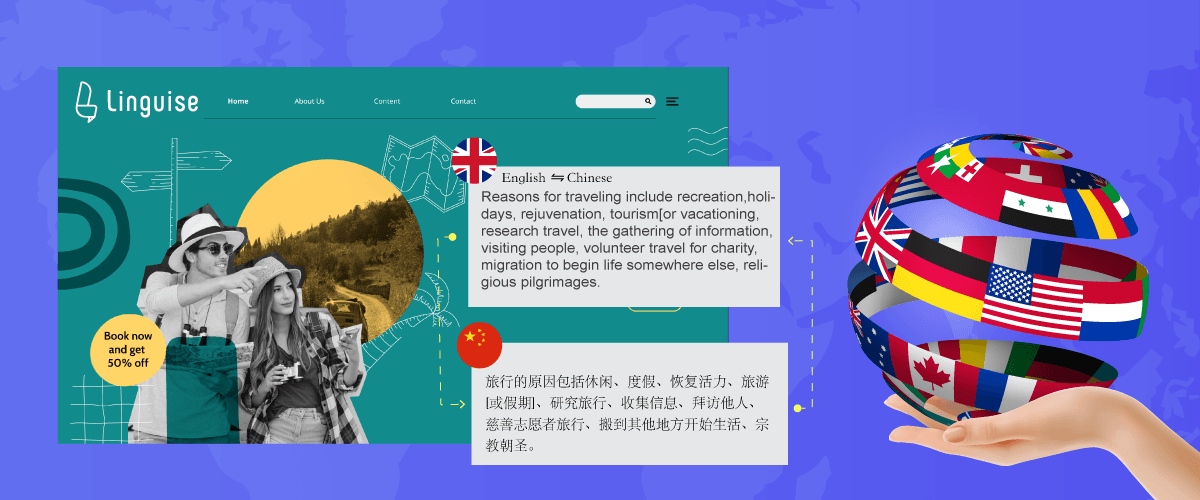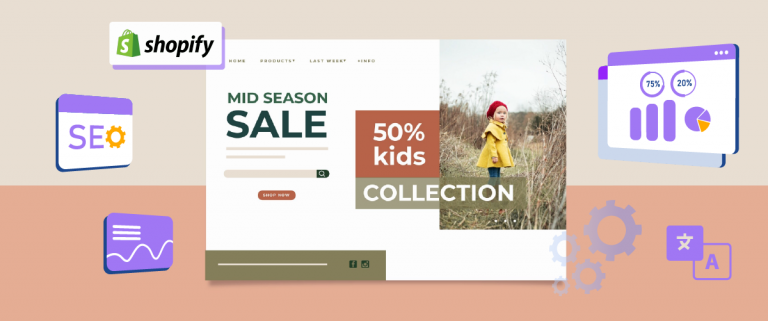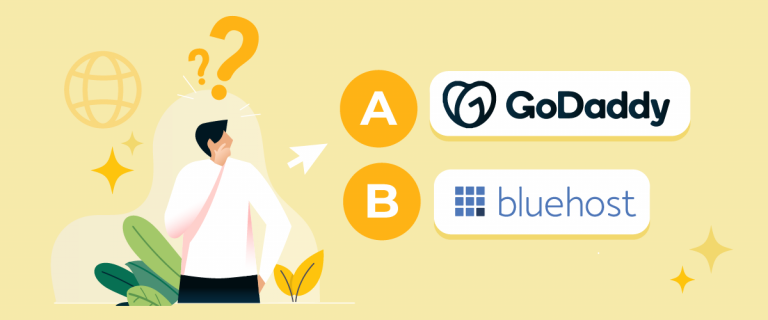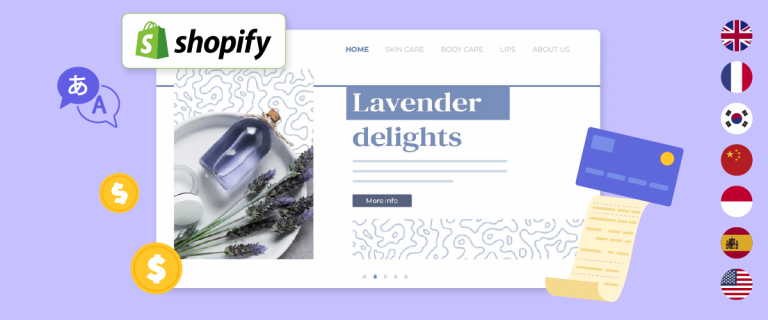Do you want to create a multilingual website and are looking for inspiration for multilingual website examples? Making a website multilingual is a key strategy for expanding audience reach, improving a site’s search engine optimization, and providing a better experience for users with multiple languages.
Therefore, in this post we have collected various examples of real multilingual websites. We have more than 13 examples of interesting multilingual websites that can inspire you to create a multilingual website.
After that we will provide a step-by-step guide on how to create your own multilingual website using one of the automatic translation services.
Best Multilingual Website Examples for Your Inspiration
Below we will discuss several examples of mutlilingual websites that can be used as inspiration, for those of you who want to create a mutlilingual website.
Jade Roller

Overview of Jade Roller
Jade Roller is a business founded by Thibault Nelkin in 2018. It aims to share the beauty and simplicity of Asian beauty rituals with everyone at affordable prices. Jade Roller is not just another new business but a pioneer in bringing beauty tools and skincare secrets from Asia to the Western market.
They have already served over 50,000 customers! Initially, they only sold products through beauty salons and brick-and-mortar stores. Later, they made great strides by opening an online store. But Jade Roller didn’t stop there. They have big dreams of having 100,000 customers by 2025 while still keeping the product quality and prices affordable.
Favorite parts of this website
My favorite part of the Jade Roller website is the combination of functional and visually appealing elements. At the top is a language switcher and currency options that make it easy for international visitors. The center image features a close-up of a woman’s face using beauty tools, reflecting their main product, beauty tools. And don’t miss the “Discover” CTA button in the slider image.
Website technologies
- Build a website using: WordPress with WooCommerce for an online store
- Available languages: French, English, German, Spanish, Dutch, Italian, etc.
- Translation tools: Linguise
Bigdog
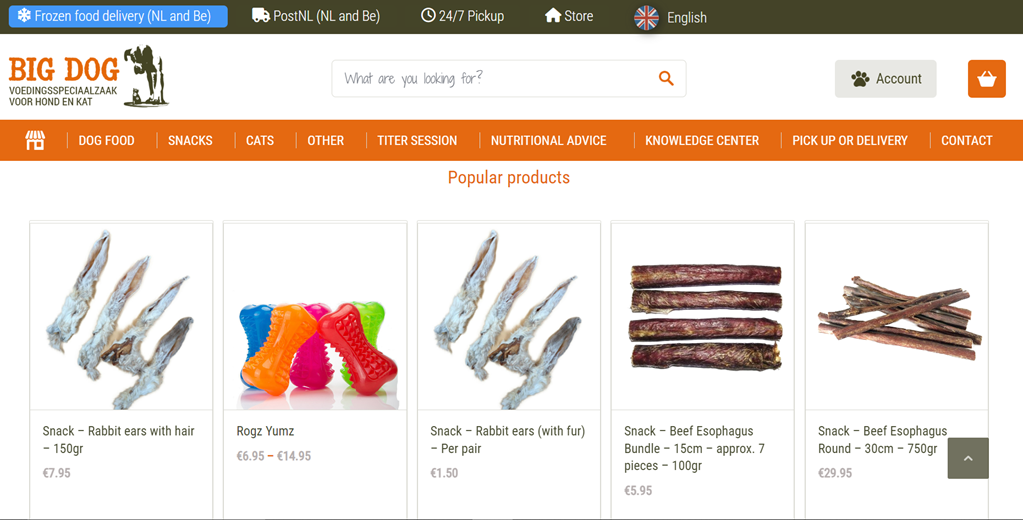
Overview of Bigdog
Bigdog is a business that sells natural food for pets, especially dogs. It started in 2007 in the Netherlands from the owner’s small garden. It is not just another pet food store but specializes in providing high-quality natural food.
Their main product is Ready Fresh Meat (CDV). This type of food has proven very beneficial to a dog’s health, as Joep, who inspired the founding of Bigdog, experienced.
Favorite parts of this website
The language switcher in the top navigation makes it easy for visitors to change the language according to their preferences. The category menu (DOG FOOD, SNACKS, CATS, etc.) helps users navigate the products easily. Furthermore, delivery and service information (Frozen food delivery, PostNL, 24/7 pickup) is directly visible at the top, providing clarity on delivery options, etc.
Website technologies
- Build a website using: WooCommerce
- Available languages: German (Deutsch), English (English), Spanish (Español), French (French), Portuguese (Portuguese), Italian (Italiano), Polish (Polski), and Greek (Greek).
- Translation tools: Linguise
Traumferienhäuser Schwarzwald
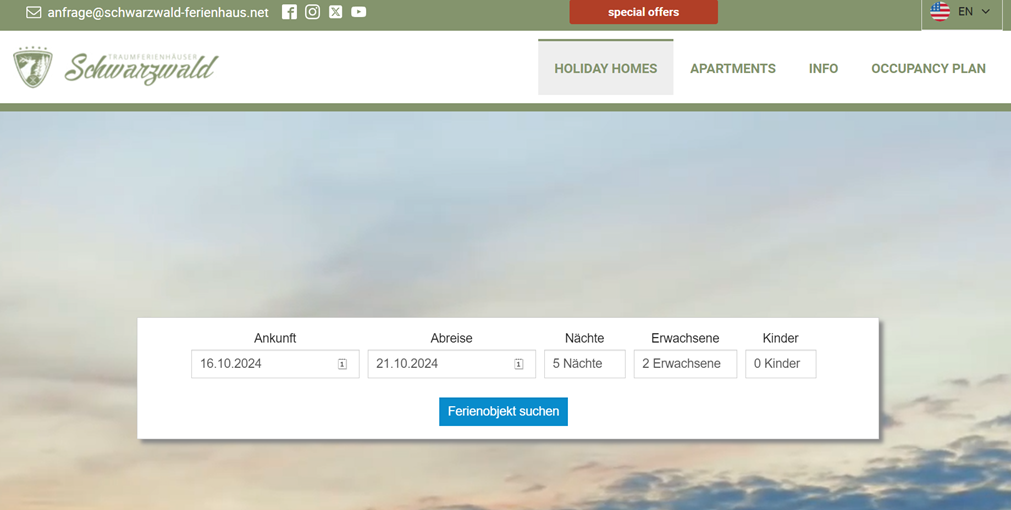
Overview of Traumferienhäuser Schwarzwald
This is a unique vacation home rental business founded by Heiko Roth in 2015 in the Black Forest region of Germany. They offer 37 exceptional vacation homes, each owned by local families who love to host.
As he wanted to expand to international guests, Traumferienhäuser Schwarzwald faced the challenge of translating their website. They were looking for an affordable yet high-quality solution.
Favorite parts of this website
A language switcher is in the top right corner to help outside visitors change languages easily. The site is categorized with “HOLIDAY HOMES” and “APARTMENTS” menus, making it easy for visitors to find suitable accommodation. The site also features a prominent search feature in the center of the page, allowing visitors to directly enter their travel details (check-in/out dates, number of guests).
Website technologies
- Build a website using: WordPress
- Available languages: It is available in 19 languages, including English, Russian, Italian, Ukrainian, Arabic, and Spanish.
- Translation tools: Linguise
Moodle
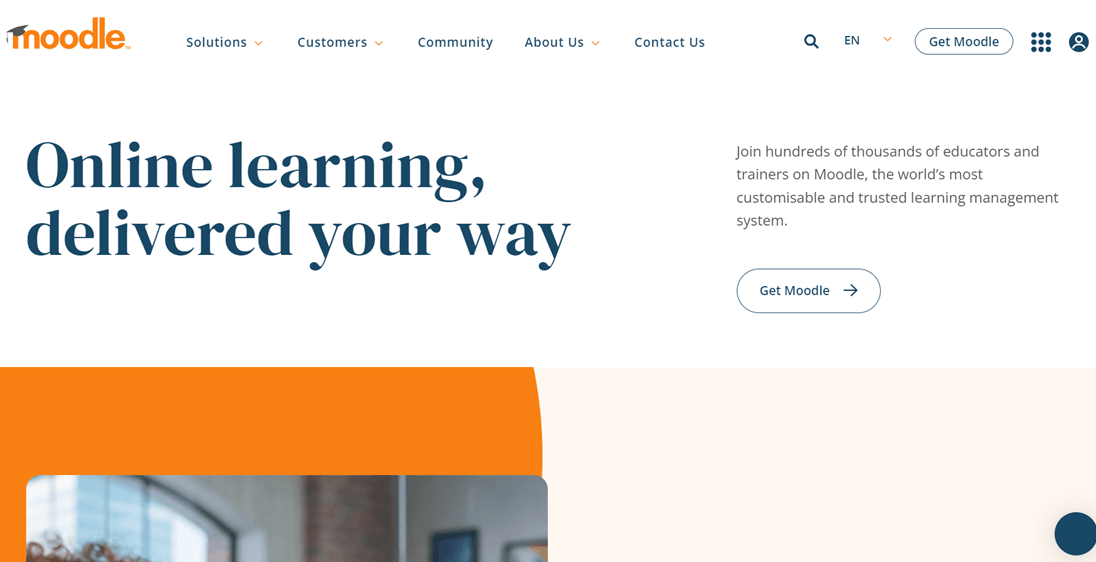
Overview of Moodle
Moodle is a widely used open-source Learning Management System (LMS) designed for educational institutions, businesses, and organizations. It enables users to create interactive online learning environments, making it easier for instructors and students to communicate and engage through tools like discussion forums, quizzes, and assignment submissions. The highly customizable platform allows users to tailor their courses and learning experiences to specific needs.
Another key advantage of Moodle is its flexibility in language support. With a global user base, Moodle offers multiple language versions, making it accessible to learners worldwide.
Favorite parts of this website
One standout feature of Moodle is its language switcher, conveniently located at the top right corner of the site. This simple yet powerful tool allows users to switch between different languages seamlessly, making the platform accessible to diverse users. The ability to quickly change the interface language ensures learners from other regions can easily navigate and participate in courses.
Website technologies
- Build a website using: PHP
- Available languages: Almost all languages are available on Moodle, including African, Indonesian, Czech, Deutsch, etc. Almost hundreds of languages are available.
- Business tools: G. Suite, Google Analytics.
Airbnb

Overview of Airbnb
Airbnb is a dynamic American company that is a global intermediary, connecting travelers with hosts offering accommodations. Known for its vast reach, Airbnb serves millions of tourists worldwide, offering a platform where users can easily rent out or book a residence. Its broad user base makes Airbnb accessible in over 50 languages, ensuring people from different regions can navigate the platform comfortably.
Favorite parts of this website
One of the best features of Airbnb’s website is its language and currency switcher. This tool lets users quickly change the language and currency according to their preferences, ensuring they can easily browse and book. The continuous flexibility to adjust settings and the automatic adaptation to browser preferences make it a highly user-friendly experience for global travelers.
Website technologies
- Build a website using: JavaScript, React, Ruby
- Available languages: Available in almost every language in the world (over 100)
- Business tools: G.Suite, Google Analytics.
- Email service: Twilio SendGrid
- Payment: Braintree
Canva

Overview of Canva
Canva is an incredibly popular online design platform that allows users to create various types of visual content, from social media posts to presentations and marketing materials. With its intuitive drag-and-drop interface, Canva has gained widespread appeal among users worldwide, making it a go-to tool for both beginners and professionals. Its accessibility and ease of use are key factors behind its success.
Favorite parts of this website
A standout feature on Canva’s website is its language switcher, conveniently placed in the footer. This ‘globe’ icon highlights the current language, and by clicking on it, users can easily access a pop-up with a list of all supported languages. Including a search option within this feature makes it simple for users to find and switch to their preferred language, providing a smooth and personalized experience.
Website technologies
- Build a website using: React, JavaScript
- Available languages: more than 50 languages in the world
- Business tools: G.Suite, Google Analytics
- Email service: Maligun, Mandrill
Nike

Overview of Nike
Nike, a leading sportswear company from the United States, is an excellent example of a multilingual website that caters to a global audience. Nike’s commitment to global accessibility and user experience makes its website a seamless platform for customers worldwide.
Nike’s website also provides a simple way for users to change their language and location. By scrolling to the footer, users can find a map icon that opens a selection menu for countries. This feature allows users to browse content relevant to their region, ensuring they receive the right product information, pricing, and language.
Favorite parts of this website
One of the best features on Nike’s website is its language switcher, which is located in the footer. It supports dozens of languages divided by continent, making it easy for users to select their country and language. Another impressive aspect is the use of high-quality images and well-organized product categories, which create a visually appealing experience. The combination of clean visuals and tailored content helps enhance the overall browsing experience, making it easier for users to explore Nike’s wide range of products.
Website technologies
- Build a website using: Magento
- Available languages: English, Indonesia, Deutsch, French, Dansk, etc.
- CRM tools: Salesforce Sales Cloud
- Email service: Campaign Monitor
Etsy
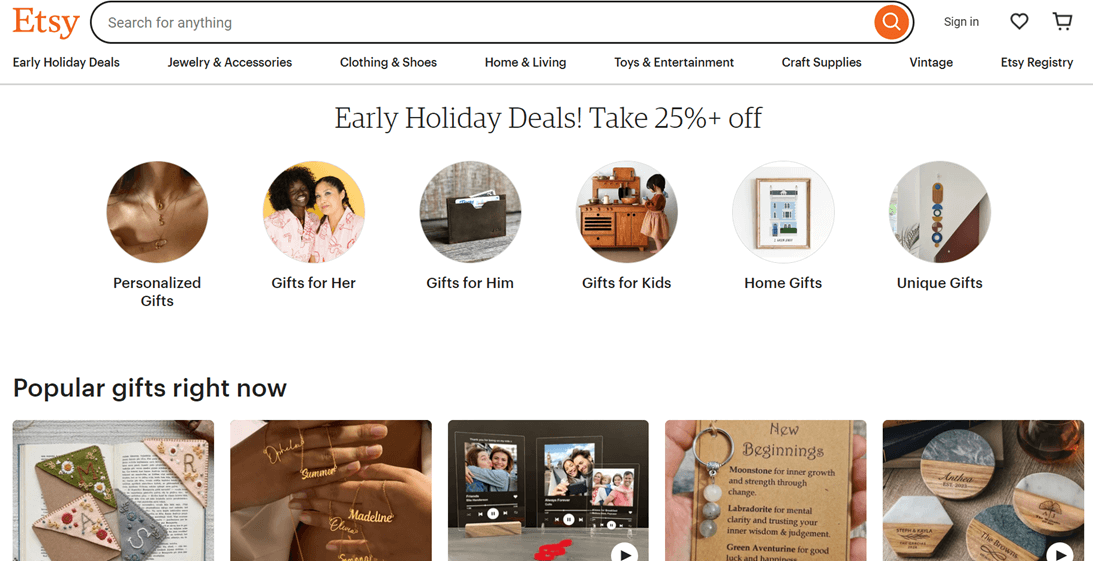
Overview of Etsy
Etsy is an online marketplace known for selling handmade goods, crafts, and vintage items. As the platform has expanded globally, it has become accessible in multiple languages. This multilingual approach ensures that users worldwide can easily navigate and shop in their preferred language, providing a more inclusive and user-friendly experience.
In addition to language options, Etsy allows users to adjust their currency, ensuring that prices are displayed according to their location. This seamless localization process helps Etsy offer a personalized shopping experience, making it easy for users to view product information relevant to their region and preferences.
Favorite parts of this website
Language, location, and currency switchers allow users to easily toggle between different languages, locations, and currencies to match their location. Additionally, the search feature on Etsy is highly intuitive, helping users quickly find items across a wide range of categories, from clothing and jewelry to home decor and art. This makes it effortless for users to discover exactly what they’re looking for in the vast array of products available on the platform.
Website technologies
- Build a website using: JavaScript, React
- Available languages: 12 languages, including English, Portuguese, Spanish, Deutsch, etc.
- Business tools: G.Suite, Google Analytics
Edgrad & Cooper
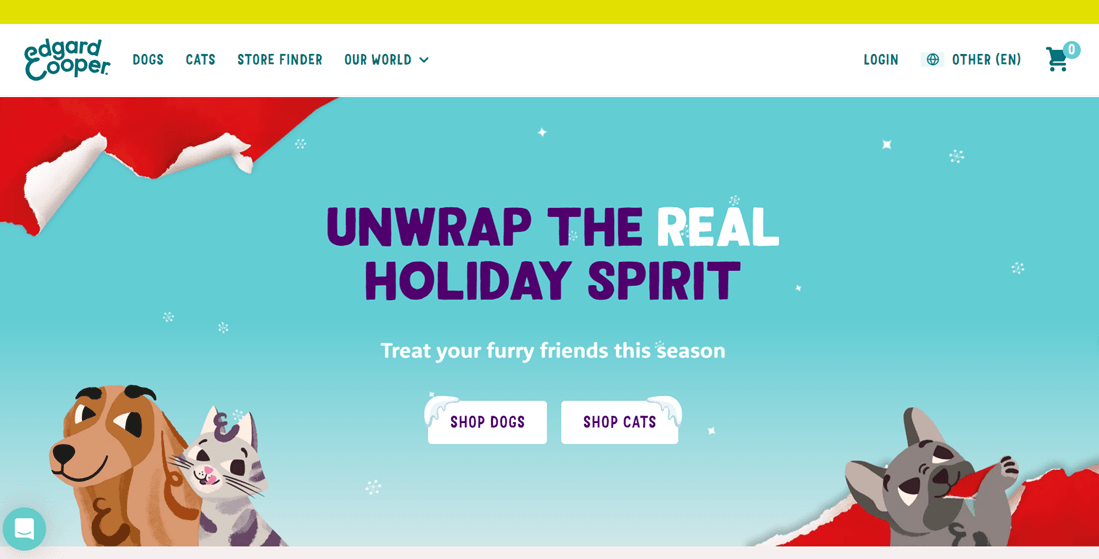
Overview of Edgard & Cooper
The next multilingual website example is Edgard & Cooper, established in 2014. It produces nutritious and delicious pet food for dogs and cats, made from natural ingredients like fresh meat, fruits, and vegetables. Headquartered in Belgium, the company is dedicated to sourcing its ingredients ethically and sustainably. Additionally, Edgard & Cooper donates 1% of all its sales to charitable causes, reflecting its commitment to social responsibility.
Favorite parts of this website
The website’s vibrant and welcoming design stands out, making it particularly appealing to pet owners globally. A key feature is the intuitive language switcher, which allows shoppers to effortlessly change the site’s default language from English to one of seven other languages. Another helpful element is the FAQ section at the bottom of the homepage, which addresses common inquiries and helps potential customers feel more confident placing orders.
Website technologies
- Build a website using: Shopify
- Available languages: 6 (English, Francais, Nederlands, Deutsch, Italiano, Espanol)
- Marketing automation: Klaviyo
Nikon Canada
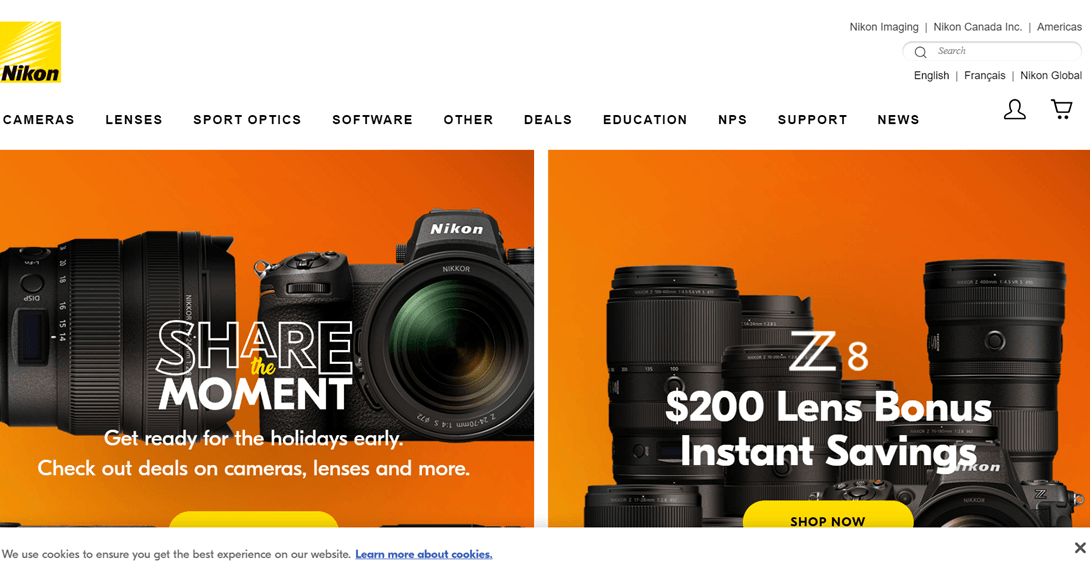
Overview of Nikon
Nikon, a renowned camera company, has a legacy that spans over a century. Established in Japan in 1917, Nikon has a global presence and carefully tailors its operations to fit local markets. For example, Nikon’s Canadian website is available in English and French, reflecting the country’s bilingual nature. This approach highlights the company’s commitment to adapting to regional needs while maintaining its international appeal.
Favorite parts of this website
The website includes clear calls-to-action (CTAs), such as “Shop Now” to explore camera options or “Learn More” for information on the latest Nikon innovations. While prices aren’t immediately displayed on the homepage, enhancing the brand’s premium feel, the Shopping Help section in the footer provides practical details on shipping, returns, and other purchasing essentials once you’re ready to buy.
Website technologies
- Build a website using: BigCommerce
- Available languages: English, Francais
- Ad management tools: Google AdWords, Facebook Pixel, etc.
Nielsen
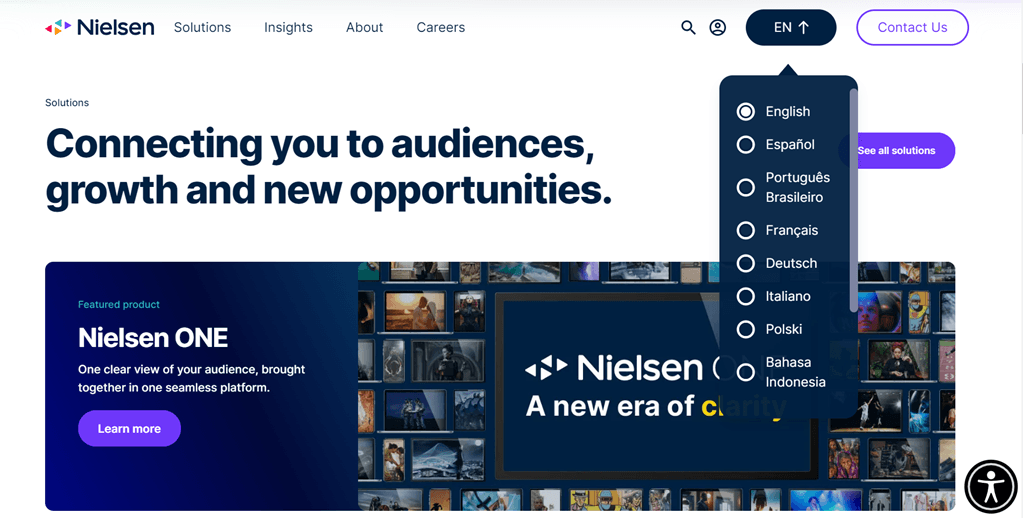
Overview of Nielsen
Nielsen is a data measurement company that performs audience measurements, insights, data and analytics that businesses use to create informed and targeted marketing campaigns. With offices worldwide, the company connects with audiences in more than 55 markets, making it a truly global business.
Trusted by major corporations like CBS, The Walt Disney Company, NBC Universal, and others.
Favorite parts of this website
The website’s clean, bright design uses accent colors to emphasize key services and features. The user-friendly navigation helps visitors easily access a wealth of resources and valuable insights tailored for a global audience. Additionally, Nielsen offers its site in over 10 languages, ensuring clients can reach them in their most important markets. These language options reflect the company’s commitment to making its platform accessible and user-friendly for its diverse clientele worldwide.
Website technologies
- Build a website using: WordPress
- Available language: 10 (English, Spanish, Indonesian, Japanese, Italian, etc.)
- CMS: SalesForce
- SEO plugin: Yoast
Cakemail
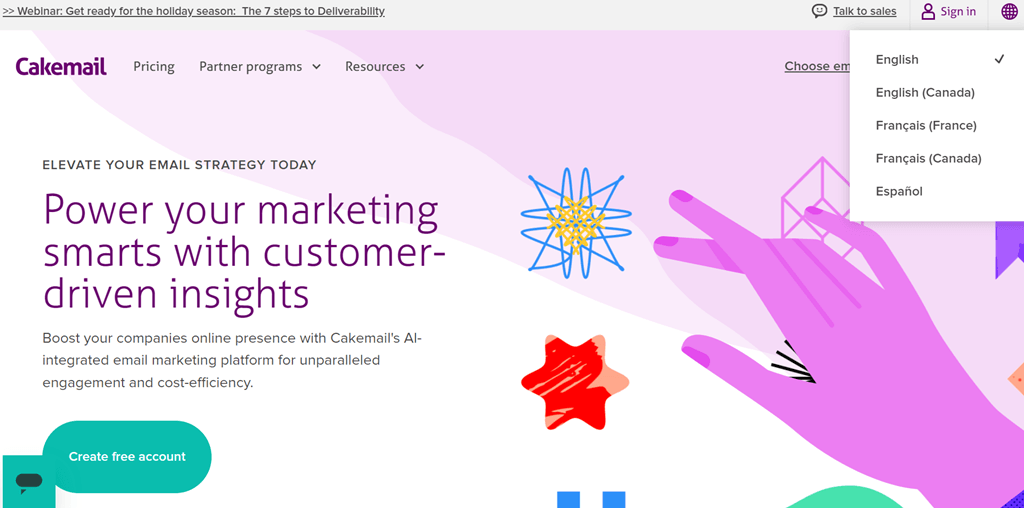
Overview of Cakemail
The next example of a multilingual website is Cakemail, an email and transactional marketing service that helps small businesses grow their customer base. This business, headquartered in Montréal, Canada, has been sending emails worldwide since 2007 and is now used by users worldwide. The business also pays great attention to detail, taking the time to translate and adapt text embedded in images for each language version.
Favorite parts of this website
Cakemail’s website is available in only two languages, English and French, but it ensures that content is thoughtfully curated for each audience. One standout detail is how Cakemail carefully translates and adapts image text for each language. This attention to detail highlights Cakemail’s commitment to delivering a personalized experience.
Website technologies
- Build a website using: Webflow
- Available languages: English and French
- Customer service: Freshworks CRM
Bluetooth Special Interest Group
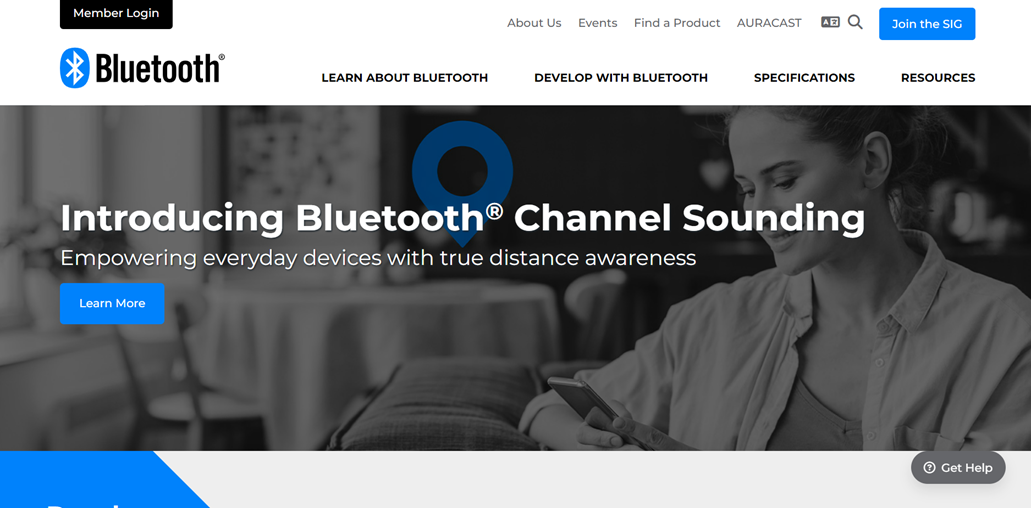
Overview of the Bluetooth Special Interest Group
The last multilingual website example is from the Bluetooth website. This wireless communication method allows devices to exchange data over short distances. Unlike technologies owned by specific manufacturers, Bluetooth is managed by the Bluetooth Special Interest Group (SIG), a global community formed in 1988 that now includes over 36,000 companies.
Favorite parts of this website
The Bluetooth SIG’s website uses the Weglot translation tool to automatically add hreflang tags, allowing search engines to recognize language-specific site versions. This makes accessing the right content easier for users in different countries. The drop-down menus in the header further enhance the navigation experience by organizing content neatly into subcategories.
Website technologies
- Build a website using: WordPress
- Available languages: English, Chinese, Japanese, Korean, German
- Marketing automation tool: Marketo
How to create your own multilingual websites using Linguise
After understanding what examples of multilingual websites can be used as inspiration, now is the time for you to try creating your own multilingual website. To create a multilingual website, make sure you already have a website that will be made multilingual.
Apart from preparing the platform you will use, you also need a translation service or plugin that can translate automatically.
Linguise is an automatic translation service that can help you create a multilingual website. What’s interesting about Linguise is that it integrates with various CMS ranging from WordPress, Joomla, WooCommerce, Shopify for online stores, and 40+ other integrations. This makes it easier for you to choose the platform to use.
Apart from that, perfect translation quality can make your website and business reach an international audience with a good user experience.
So how do you create a multilingual website using Linguise? Check out the steps below, here we will discuss install Linguise on WordPress, to find other guides, find the Linguise documentation.
Register for Linguise account
The first step is to register a Linguise account for free, you will only be asked for your email, name, then create a password without needing to enter a credit card. After that you can enjoy Linguise’s free features for 1 month.
Even though it’s free, you can use all the features starting from multilingual SEO, front end live editor, global translation exclusion, and various other superior features.
Add domain website
After you have a Linguise account, now is the time to add the website domain for which you want to translate pages. Then you will get access to the dashboard then select Add domain.
Some things you have to add include URL, account, platform used, language you want to add. Click Next step.
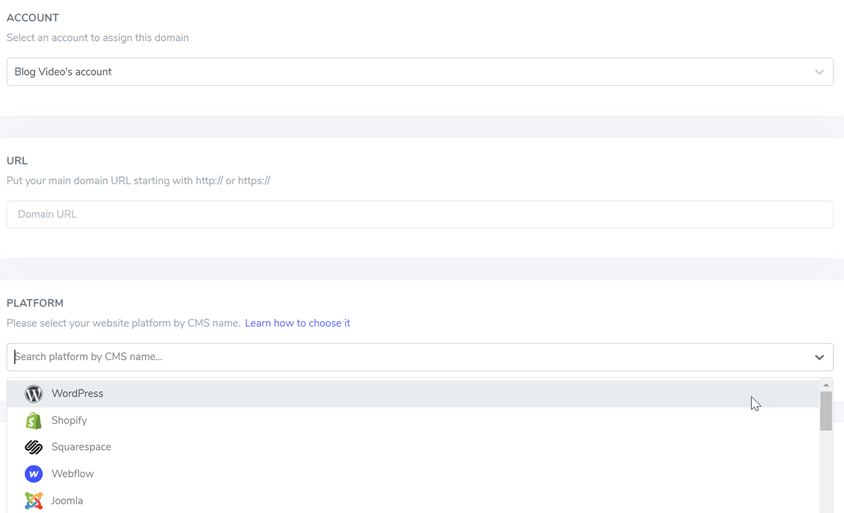
Activate API key
Next, select the domain that has been added then a display like the following will appear and select Copy to clipboard.
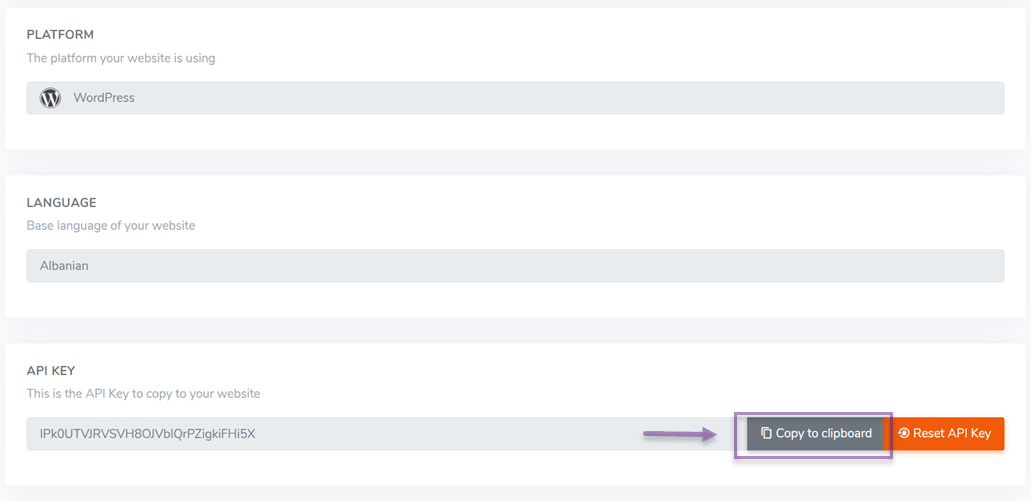
After that, if you choose the WordPress platform, then open your WordPress web dashboard and install the Linguise plugin by selecting the Add plugin menu.
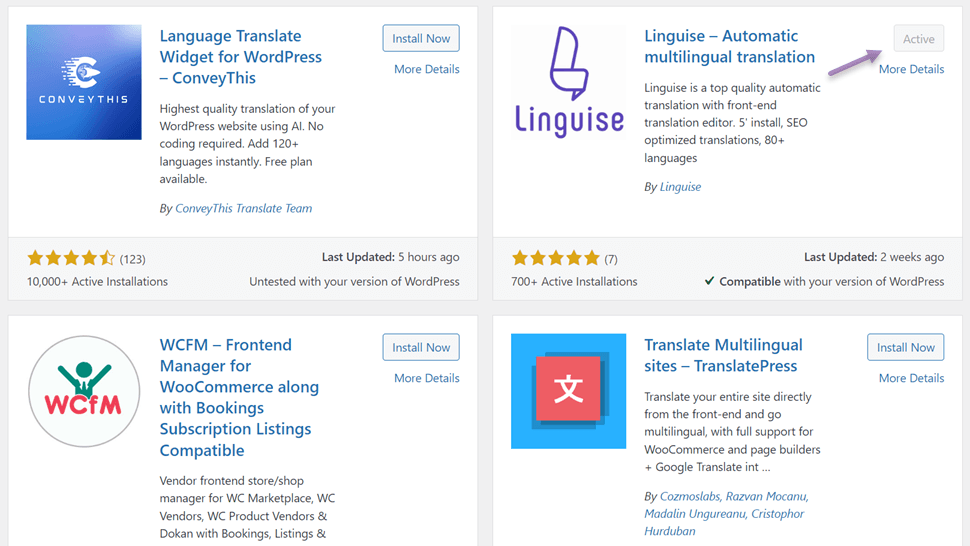
Then click on the Linguise plugin that has been installed and paste the API key that you copied previously then select Apply. If successful, the website will automatically be translated.
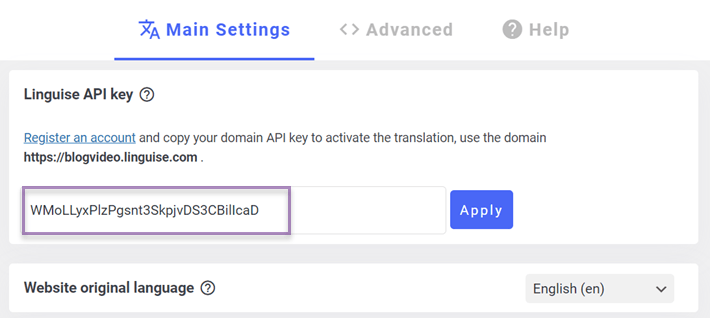
Setup the language switcher
Once the API is connected, now is the time to setup language switcher, you can set it in WordPress or in the Linguise dashboard. Here’s how if you set it on the dashboard, namely select Settings > Language flags display.
Here you can set the position, then the form will be dropdown, pop up or something else and you want to use the short language name or full name.
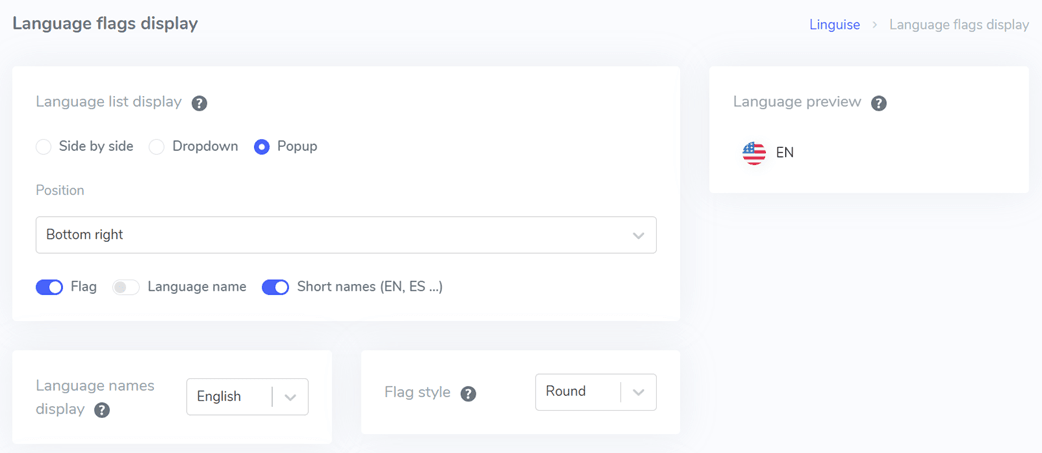
When you have finished setting it, select Save and see the results of the language switcher and flag display on your website.
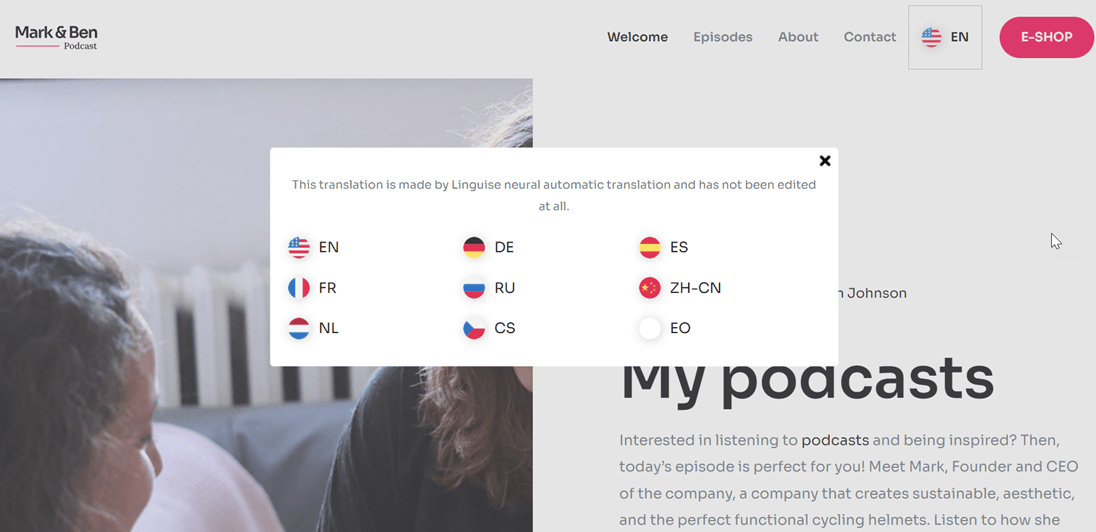
Why Linguise for translate your multilingual website?
Now that you know how to create a multilingual website using Linguise, what are the advantages of Linguise for translating your website? Let’s look at the explanation here.
- Cloud AI translation: Linguise utilizes an advanced AI translation model, ensuring smooth and automatic translation. The translations are regularly updated every three months for consistently accurate results.
- Up to 80 languages: With a broad array of over 80 languages to choose from, you can forego the manual generation of content in each language, as Linguise takes care of the automatic translation into your selected languages.
- Multilingual SEO: Linguise has been meticulously designed with a strong emphasis on SEO optimization. From creating SEO-friendly URLs to integrating alternate links and expanding its SEO capabilities beyond Google, Linguise facilitates global visibility across multiple search engines.
- Instant translation updates: Imagine adding a new page to your website and instantly generating 20 additional pages in various languages. With Linguise, this task becomes effortless, and the indexing of the page begins promptly.
- Trial before subscription: Linguise offers users the convenience of testing its features without committing to a subscription. Enjoy a one-month free trial without the need for a credit card.
- Advanced functionalities: Lastly, Linguise provides an extensive range of advanced features for translating Webflow websites, enabling you to fully leverage its capabilities.
After seeing multilingual website examples, let's start your own.
These are some examples of multilingual websites that you can use as inspiration. There are approximately 14 examples of multilingual websites that come from various types, such as company profiles, businesses and online shops.
After getting inspiration regarding multilingual websites, don’t forget to try creating your own multilingual website using an automatic translation service like Linguise.
With Linguise, you can produce high-quality translations for various types of CMS. What are you waiting for? Immediately register for a free Linguise account and create your own multilingual website!

